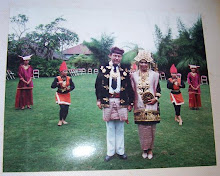Abstract
This study investigates the effect of development interventions on the empowerment of community and women in two Northern Balinese villages that are part of the EU-financed irrigation project. It lays bare the limits of empowerment achieved as well as the pervasive presence of patriarchy across the whole economic, social and cultural spectrum.
In the area under study, a level of economic empowerment has been achieved through development interventions. Yet, its foundation is weak. Food security is problematic owing to the small size of agricultural landholdings and, in the longer term, environmental and economic sustainability is questionable on account of water scarcity and the fickleness of prices in a tourism market.
Division of labour and power are heavily skewed in men’s favour. Men enjoy custom-enshrined power both at the village and the family levels. Women on the other side are not only without power, but development interventions translate for them into an additional work burden. On top their traditional domestic chores, they have to help in agricultural tasks, participate in development-induced income generating activities (bead sewing, chips, oil, sugar and handicraft making) and take on the biggest share of the ritual tasks.
The “ability to make choices”, which defines empowerment, is dominated by the existing male village elite. Women’s development activities are limited to the enhancement of their productive generating role. When women leaders do emerge, it is through top-down social engineering or through the entreaties of patriarchal power. Capacity building is limited to acknowledging, not solving, problems in the groups. Women In Development’s officers do exist, but operate under male surveillance and have little access to funds or managerial skills.
Patriarchy is all-pervasive. Both men and women leaders claim that participatory behaviour and gender equity are part of their local village culture. As member of the Bali Aga community groups, which does not acknowledge the existence of the caste system, they view themselves as democratic, open to socio-cultural change and therefore modern. They thus reinvent tradition as part of a modern denial of a reality that is otherwise self-evident in all the data of the study.
Several lessons can be drawn. At a specific level, long term economic and ecological feasibility should be of higher concern. Special steps should be taken to minimize the environmental damage due to salinity and the scarcity of groundwater. Procedures should be devised by community consent, allowing better participation by the poor and unprivileged, men and women alike. Existing customary procedures such as those of the awig-awig could be enhanced as a starting point. In relation to women’s empowerment, the option of mixed gender development groups should be considered to complement the women-only and men-only groups that the EU has set up.
At a more general level, a better and deeper account should be taken of ecological and socio-cultural factors and mechanisms, instead of solely focusing on the economic side of development.
Monday, February 25, 2008
Subscribe to:
Post Comments (Atom)

No comments:
Post a Comment